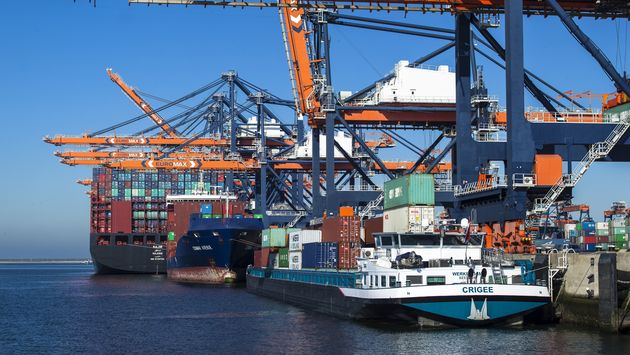Various barge operators, deep-sea terminals and inland terminals are working together to bundle container flows along corridors between Rotterdam and the hinterland, according to an announcement by the Port of Rotterdam Authority, which said it supports these market initiatives, which contribute to the optimisation of the inland container shipping chain.
These corridor initiatives are the outcome of an inland container shipping consultation organised in 2017 at the initiative of the port authority. This sector-wide consultation was set up in response to increasing waiting times for inland container vessels at terminals in the port of Rotterdam, which believes that collaborating with other innovations like the Nextlogic planning tool, the new partnerships can help resolve this complex issue.
The corridors in question concern different shipping connections between the port of Rotterdam and regions in the hinterland. One finds numerous inland terminals along these routes, which are used by a big number of inland vessels. Various barge operators and inland terminals have decided to work together to bundle the flow of containers destined for specific deep-sea terminals.
As a result, large volumes of containers can be moved between the different deep-sea and inland terminals using inland vessels that sail according to a fixed schedule. In addition, the barge operators and the deep-sea terminals have agreed to load and unload containers during specific time slots and to put through a minimum number of containers (moves) per inland vessel.
“These agreements have made the handling of inland container shipping flows in the port of Rotterdam both more reliable and more efficient,” highlighted the major Dutch port in its announcement.
The first corridor partnerships to come out of the sector-level consultation , the West Brabant Corridor (WBC) and the Ruhr Express, were set up in 2018 with the support of the Port of Rotterdam Authority. Τhey were soon followed by other collaboration and bundling initiatives along various corridors in the Netherlands and Germany. Besides the North West Central Corridor and the Limburg Express, sector parties have also teamed up to organise scheduled services to specific deep-sea terminals in Rotterdam along the CAN Corridor and the Maascorridor.







